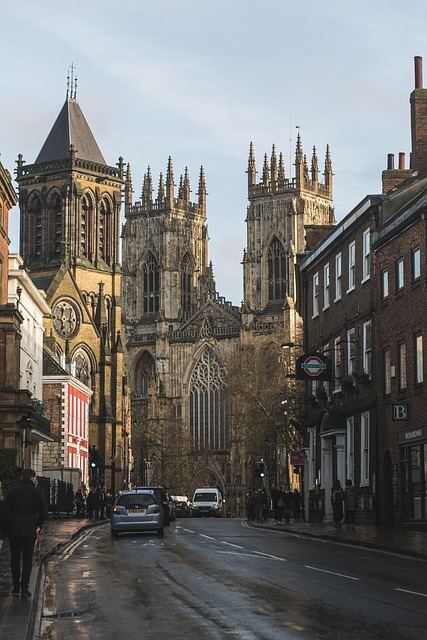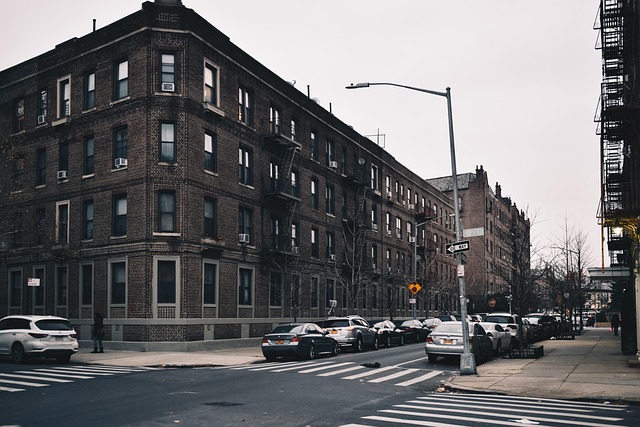In New York City (NY), the rehabilitation of reformed offenders is a comprehensive, holistic process led by correctional facilities and probation departments. This involves tailored treatment plans, job placement programs, and support groups for reintegration into society. NY's robust legal system guarantees access to employment, housing, and public benefits regardless of past criminal records, with expungement and record sealing further enhancing opportunities. Restorative Justice models focus on healing and reconciliation, empowering ex-offenders with conflict resolution skills and insights into their behavior's impact. Additionally, fair housing practices and protections against discrimination in hiring help secure stable accommodations and employment, reducing recidivism rates through community resources like non-profit organizations and government initiatives.
In New York City, the legal rights of reformed offenders present a complex yet evolving narrative. This article explores the multifaceted journey of rehabilitation within the city’s criminal justice system, highlighting key protections offered through NY’s progressive legislation. From restorative justice initiatives to employment and housing rights, we delve into how these programs empower ex-offenders for successful reintegration. Additionally, community support systems and resources are examined, providing a comprehensive guide for understanding and enhancing the lives of reformed individuals in NYC.
Understanding the Rehabilitation Process in New York City
In New York City, the rehabilitation process for reformed offenders is a multifaceted endeavor aimed at reintegrating individuals back into society as productive members. This involves a series of steps that include counseling, job training, and community support programs designed to address the root causes of criminal behavior. The city’s correctional facilities and probation departments work collaboratively with non-profit organizations and community resources to provide comprehensive services tailored to each offender’s unique needs.
The process begins with assessment and planning, where experts evaluate the offender’s mental health, substance abuse history, and past behaviors. This is followed by individualized treatment plans that focus on therapy, education, and skill development. Offenders are then gradually reintegrated into society through supervised release programs, job placement services, and ongoing support groups. NY’s approach emphasizes that successful rehabilitation requires a holistic view, acknowledging the social, economic, and psychological factors that contribute to criminal activity.
Legal Protections for Reformed Offenders: A Comprehensive Overview
In New York City, reformed offenders are entitled to a range of legal protections designed to facilitate their reintegration into society and reduce recidivism. These protections include access to employment opportunities, housing, and public benefits, regardless of their past criminal record. The state has implemented various laws and initiatives to ensure that individuals who have turned their lives around are given a fair chance at success.
The legal framework in NY also provides for expungement and sealing of records, which can significantly improve job prospects and access to housing. These measures aim to protect the rights of reformed offenders while encouraging them to stay on the right path. Additionally, support services such as counseling, education programs, and job training are available to help these individuals thrive in their communities, fostering a sense of belonging and personal growth.
Restorative Justice and Its Impact on Ex-Offenders' Rights
In New York City, Restorative Justice is gaining traction as a significant approach to reintegration and rehabilitation for reformed offenders. Unlike traditional punitive measures, Restorative Justice focuses on healing and reconciliation between victims and perpetrators. This paradigm shift emphasizes the rights of ex-offenders to receive support and opportunities for personal growth while addressing the harm caused by their past actions. By facilitating open dialogue and accountability, Restorative Justice practices empower individuals who have served their time to rebuild their lives with dignity and purpose.
For reformed offenders in NY, this model offers a fresh start by acknowledging their wrongdoings while also recognizing their potential for change. Through restorative processes, ex-offenders can develop skills for conflict resolution, gain insights into the impact of their behavior, and foster meaningful connections within their communities. As a result, they are better equipped to navigate the challenges of reentry, reduce the risk of recidivism, and assert their legal rights as productive members of society in the Big Apple.
Employment Opportunities and Housing Rights for Reformers in NYC
Reformed offenders in New York City (NY) face a unique challenge: reintegrating into society while navigating their legal rights and opportunities. One significant aspect is employment, as it offers a pathway to stability and self-sufficiency. The state and city laws protect reformed individuals from discrimination in hiring, ensuring they have an equal chance at gainful employment. This includes provisions that prevent employers from asking about arrest or conviction records without good cause, fostering an inclusive environment for those seeking a fresh start.
Housing is another critical area where NY has implemented measures to support reformed offenders. Local laws mandate fair housing practices, prohibiting discrimination based on criminal history. This enables ex-offenders to secure stable housing, which is essential for their successful reintegration into the community. Additionally, non-profit organizations and government initiatives often provide resources and assistance to help them find suitable accommodations, marking a significant step towards reducing recidivism rates in the city.
Support Systems and Community Resources for Reintegrated Individuals
After serving their time, reformed offenders reentering society in NYC face unique challenges. However, a robust network of support systems and community resources is available to aid their successful reintegration. Non-profit organizations, government initiatives, and faith-based groups offer various services, from job training and education programs to housing assistance and mental health support. These institutions play a crucial role in helping individuals overcome barriers and adapt to life outside prison.
Community resources in NY are designed to empower reformed offenders, fostering independence and self-sufficiency. Shelters, career centers, and social service agencies provide essential tools and guidance, ensuring that reintegrated individuals can access employment opportunities, housing, and healthcare services. Additionally, community programs focus on building social connections, offering mentorship, and facilitating participation in local activities, all of which contribute to a smoother transition back into society.






